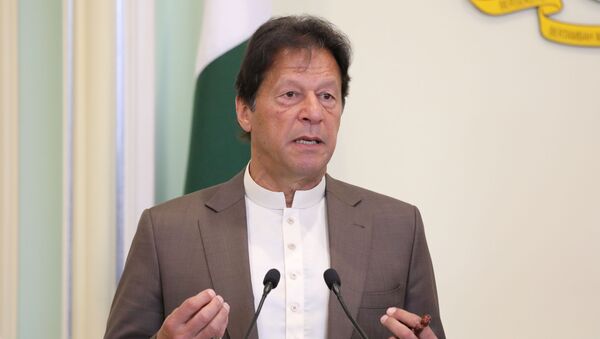Pakistan's Prime Minister Imran Khan, currently on an important visit to Malaysia, said that Islamabad would try to compensate the loss due to Indian sanctions on imports of refined palm oil. Before the sanctions, India was the biggest buyer of Malaysian palm oil, while Pakistan bought 1.1 million tons of it from the country in 2019.
While discussing the palm oil import issue during a delegation-level talk on Tuesday morning, Malaysian Prime Minister Mahathir Mohamad said that Pakistan was “quite ready to import more palm oil from Malaysia”.
"That's right, especially since we noticed that India threatened to cut Malaysia's palm oil imports for supporting the Kashmir cause, Pakistan will do its best to compensate for that", Prime Minister Imran Khan added.
Meanwhile, Malaysia hoped that India, which previously purchased more than nine million tons annually, would soon lift the curb on purchasing palm oil.
"Having long-standing bilateral ties, the two nations will overcome the current challenges, and prevail towards mutual and beneficial outcomes", the Malaysian Palm Oil Council said in a statement on Tuesday.
Bilateral relations between India and Malaysia soured last year when in September 2019, the Malaysian prime minister, during a speech at the United Nations General Assembly (UNGA), called Jammu and Kashmir “invaded and occupied” territory.
Mahathir once again in December 2019 criticised the Indian government for implementing a citizenship law that provides nationality through naturalisation to be fast-tracked for non-citizens who are persecuted minorities (except Muslims) from three countries, namely Bangladesh, Pakistan, and Afghanistan.
Nevertheless, India did not connect the decision to sanction palm oil imports with the statement made by Mahathir on Kashmir and the citizenship law.
Imran Khan’s two day visit, with a delegation of ministers and officials, was also an attempt to placate Kuala Lumpur after he skipped a major summit of Islamic countries hosted by Mahatir Mohamad in December, reportedly under pressure from Saudi Arabia.


